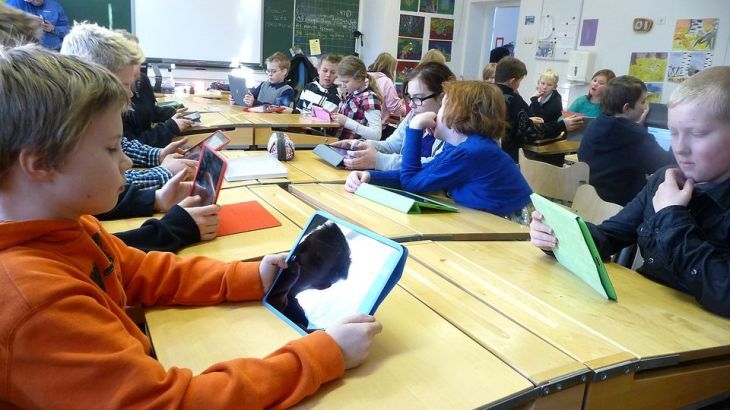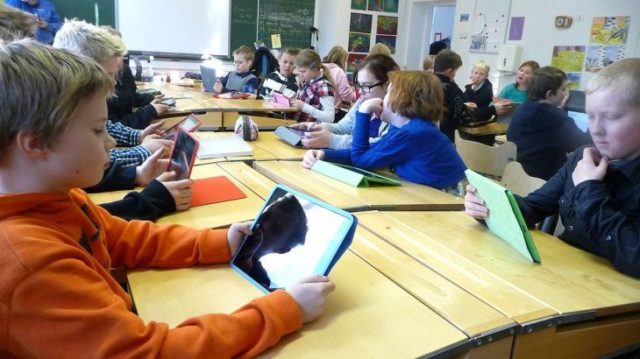Educational Issues
Nigeria’s Education sector; Lessons from Finnish System -By Hammed Jimoh

Before the manipulation came that “power is power”, a widely said dictum that transcends all lands and borders is knowledge is power. If one means no harm and no unideal conviction is concerned, one would believe that the only way to make power flow from generation to generation is through making available to the teeming youth population, a qualitative education. A form of education that break all shackles and cross all barriers. The above is what I call the real power. Going by definition, a scholar once define Education management as a process of allocating, monitoring and evaluating human and material resources devoted to education by both public and private sector towards achieving a set of educational goals in the society. This goes on to inform us that a decentralized system of educational management should be in place if progress must be made in our education sector.
As a developing nation striving hard to locate a better position to place herself on the global map of committee of nations, it is imperative that Nigeria at every point review its educational system. It does not matter how it is done and it does not matter what level of Education is attended to first. What matters is there must be a total overhauling of our educational system so as to hone the skills inherent in our graduates and make them move at the same speed with counterparts of the same level of Education from other parts of the world. Anything worth doing well is worth doing well at once lest our graduates would need extramural classes before they could compete and be on a level playground with graduates from developed climes.

Finland education system
As developing the Primary Education is concerned, we do not need to just hire teachers to train our pupils at this stage but we need professionals that are naturally and empirically configured to take care of such assignments. People of empathy, piety and passion towards child’s development are needed if anything must change. These teachers must also be taken care of with adequate humane treatment and financial remuneration. In nations leading in worlds educational ranking, Finland as example, having qualified teachers is core and a masters degree is a prerequisite for taking up teaching job unlike Nigeria where unemployed graduates are forced to take up teaching job that they have no interest in. Our pupils are not to be forced to sit down long hours except their brain is ready to go through such psychological journey. In developed nations, teaching is not forced on children and it is love and compassion that educationists at that level show first and the pupils in turn show love to learning. Example of this is seen in the Finland where for every 45 minutes of lecture given, pupils have access to a 15-minutes playtime. Under an environment like this, it is even the pupils that show the readiness and alertness to learn at this level. Until such highlighted things are incorporated into our basic primary education, we might be wasting more time than necessary in educating our youngsters.
When the abovementioned is attended to, it makes work easier at the secondary level of Education and as knowledge slams door against poverty, our youths would be able to open door for prosperity and at the same time be able to explore technological advancement that would show the result of a robust Science, Technology, Engineering and Mathematics. It is factual that whatever a youth becomes out of school is determined in his secondary school stage. Becoming a doctor, lawyer or engineer is determined at this stage of education and once this is determined, special attention to demo research and availability of teaching aids is needed so as to ensure that the students stay in line of their chosen career and they make the necessary moves. Required mistakes that would make them a better version of who they used to be can also be committed. In the same vein, when career paths are clearly defined, adequate planning for future can be done by all the stakeholders involved in the education sector and this would make students have better conviction before they get to the higher institutions of learning.
The Nigerians higher institutions of learning and the University majorly is suffering most from the poor funding of our educational sector and this in turn fires `back at our economy and technological advancement. Countries that have given high percent of their yearly budget to the sector have bountiful harvest in the area of economic development and technological advancement. According to the Budget office of the federation, Nigeria’s budgetary allocation for education in 2018 is a paltry amount of 605.8 billion naira of total budget of 8.612 trillion (7.03%) while United Nations Educational, Scientific and Cultural Organization (UNESCO) recommended 26% of annual budget. If this allocation is compared to some African countries, we have 31% from Ghana, 30.0% from Cote d’Ivoire, 27% from Uganda while the lowest one is more than doubling that of Nigeria (Lesotho, Tunisia 17.0%). This poor funding birth myriad of other factors bedeviling the education sector. Among them are poor Infrastructure, poor remuneration of workers, Poor security, absent of needed technology to aid teaching and learning. In the 21st century Nigeria, we have lecture halls that could not accommodate half of the students taking lectures in such hall, we have students taking practical session while standing and putting their writing pads on the ground or on the back of their colleagues. Unlike in Finnish education system where school is believed to be a way for finding happiness and a way to learn, we have lecturers that go to class only to vent aggression on students and threaten to fail them if they fail to buy handouts. The student to lecturer ratio in Nigeria is very low and on average it is over 50 students to just 1 lecturer.
The substandard nature of our education can be forgotten, the narratives can be changed if our government pay more attention to the management of education, taking into consideration a total revamping of the teaching service commission, making adequate fund available to the sector as recommended by UNESCO and reviewing the whole system by ensuring that better result is achieved during short period of time. I will also pontificate that Nigerian University Commision (NUC) patronize a mock system of examination as prerequisite for entrance into and graduation from Universities in the country as this would stand as a qualitative measure of strength and confidence in the nations graduates.
Hammed Jimoh is an Abuja based freelance Journalist; follow him on twitter @Octomed

















